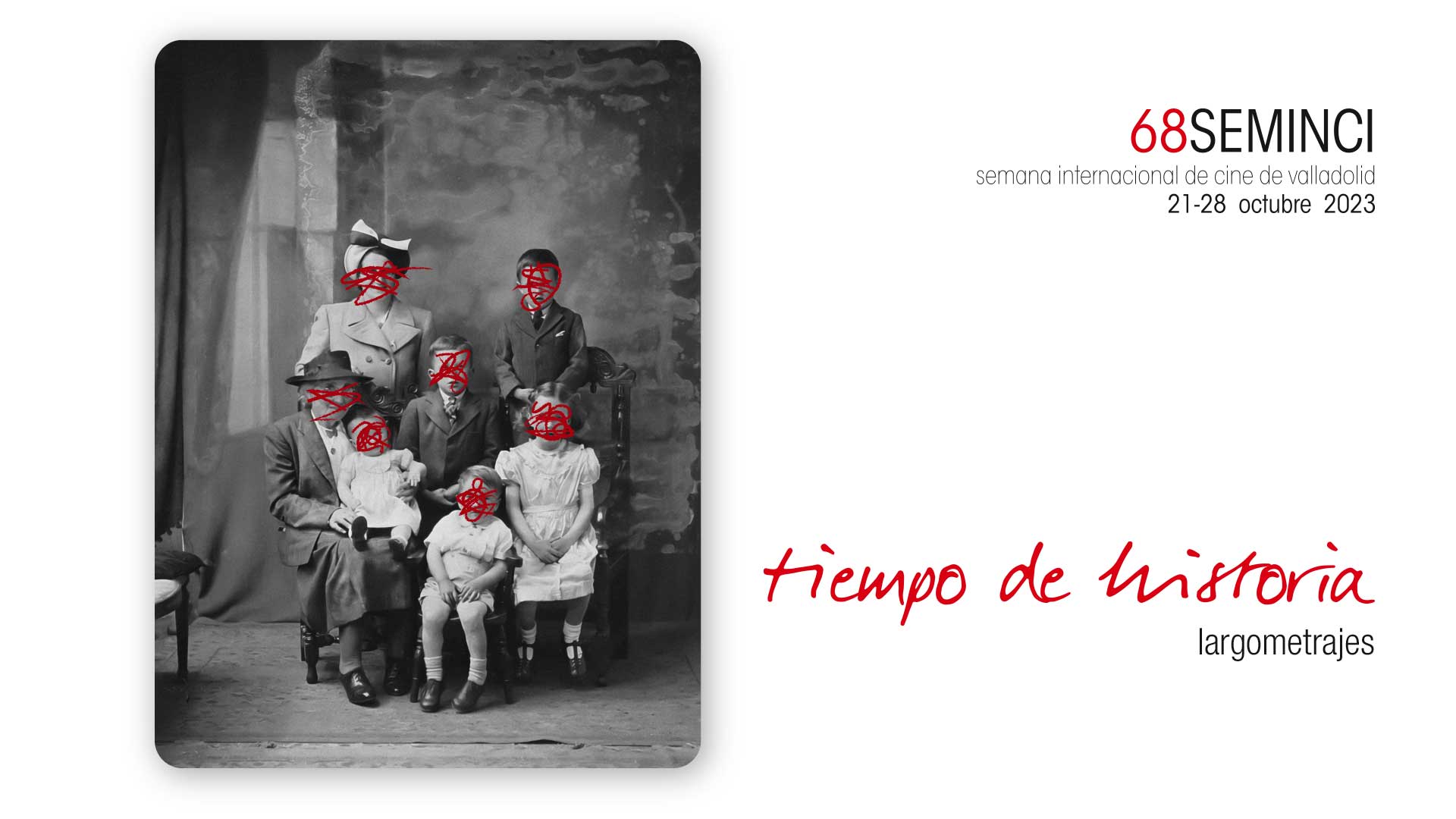The Time of History section of the 68th International Film Festival of Valladolid (Seminci) embraces the new directions of non-fiction and adds six titles, a selection that bets on narratives that explore the aesthetic and formal variety of documentary cinema and x-ray realities of Iran, Romania, Chile and Morocco. They are The Mother of All Lies, by Asmae El Moudir; Between Revolutions, by Vlad Petri; Malqueridas, by Tana Gilbert; Arsenie. An Amazing Afterlife, by Alexandru Solomon, and the diptych Where God is not and My Worst Enemy, by Mehran Tamadon.
Young Moroccan filmmaker Asmae El Moudir presents her second film, The Mother of All Lies, winner of the Golden Eye Award -shared with The Four Daughters (Kaouther Ben Hania), which will be screened in the Official Selection- and the Best Director Award in the Un Certain Regard section of the Cannes Film Festival. Chosen by Morocco to represent the country at the upcoming Oscars, the film connects today’s Morocco with that of the 1981 ‘bread riots’. On a handcrafted set populated by miniatures that replicate the Casablanca neighborhood where he grew up and a historical reality of which there are hardly any images, El Moudir reviews his childhood with his own family and friends as protagonists. His testimonies and the use of miniatures and animation techniques serve as a bridge between his personal history and the political history of the country.
Romanian filmmaker Vlad Petri participates in Time of History with Between Revolutions, winner of the FIPRESCI award in the Forum section of the Berlin Festival and selected for the European Film Awards (EFA) in the best documentary category. In Between Revolutions, two women who strike up a deep friendship during their university years are separated and suddenly both have to live through their own revolution, each one more different than the other: one, the Islamic revolution in Iran; the other, that of dictator Nicolae Ceauşescu in Romania. The film is structured through the epistolary dialogue they engage in, where real documents – declassified by the Romanian Securitate – are mixed with fictional elements.
Tana Gilbert‘s debut feature, Malqueridas, won the Grand Prix at the Venice International Critics’ Week and an award for technical contribution. Filming with a cell phone in prison is forbidden. However, the young Chilean filmmaker, who participated in the 62nd Seminci with her short film Sigo acá, also screened at Tiempo de Historia, documents with images recorded clandestinely by the inmates themselves the situation of abandonment of a community of imprisoned mothers, capable of overcoming challenges by clinging to their love and mutual support, even far from their families and loved ones.
The life, work and miracles of the priest, theologian and mystic Arsenie Boca is the subject of Arsenie. An Amazing Afterlife, with which the Romanian documentary filmmaker Alexandru Solomon arrives for the first time at the Seminci. The filmmaker joins a group of believers on a pilgrimage in the footsteps of this saint to recreate scenes from his life, discuss the miracles attributed to him and reflect on the state of the world in a colorful and, at many moments, humorous snapshot of a society that seeks to preserve faith in miracles in the face of the threats that surround it.
And here comes something unheard of at the Seminci: a director presenting two (very) different films in the same section with a common denominator: repression in Iran. In My Worst Enemy, Mehran Tamadon recreates a cell on the outskirts of Paris, where three victims of police torture share their memories and feelings. They are the Iranian journalist who has been imprisoned the most times, according to Reporters Without Borders, a video entrepreneur accused of being a spy and a woman who was betrayed by her cellmates.
In the second, Where God is Not, it is the director himself who assumes the role of victim and asks the multi-award-winning actress Zar Amir Ebrahimi, best actress at Cannes for Holy Spider (Ali Abbasi) and also exiled in France, to subject him to the same interrogation she suffered at the hands of regime agents when in 2006, as a television star, a sex video of her and her boyfriend was leaked on the internet. Here begins a game of growing tension to the point that Ebrahimi herself questions Mehran Tamadon about his use of cinema as a political weapon and the limits of what is shown to the viewer.
Rafa Alberola will compete for the Doc. Spain Award
Filmmaker Rafa Alberola, Silver Biznaga in Malaga for his short Arenal (2019), included in the Spanish Cinema section of the 65th Seminci, and co-screenwriter of Pueblo (2014), a short film by Elena López Riera premiered at the Cannes Directors’ Fortnight, will screen his film Elogio del Horizonte at the Seminci. A couple travels by train to the coast with the intention of making a film. They are going through a life crisis and believe that this will get them out of it. However, the filming fails and from there a close reflection on our place in the world, on work, on cinema and, above all, on love. Elogio del horizonte will compete for the Doc. España Award, which is now a transversal award for different sections. This award, endowed with 6,000 euros, will recognize the best Spanish documentary among those screened at the festival.
Along with Alberola’s work, the feature films of Time of History Un volcán habitado, a chronicle by José Víctor Fuentes and David Pantaleón about the eruption of the volcano of La Palma through WhatsApp audios of a group of friends who live on the island, will also compete; La estafa del amor, a film shot ‘live’ that brings together disparate characters to discuss relationships and romanticism, and Zinzindurrunkarratz, by Oskar Alegria, a poetic exploration of the relationship between sound and memory and a journey through the mountains of Artazu, in Navarra.



























![Logo Foro Cultural de Austria Madrid[1]](https://www.seminci.com/wp-content/uploads/2024/09/Logo-Foro-Cultural-de-Austria-Madrid1-300x76.jpg)








